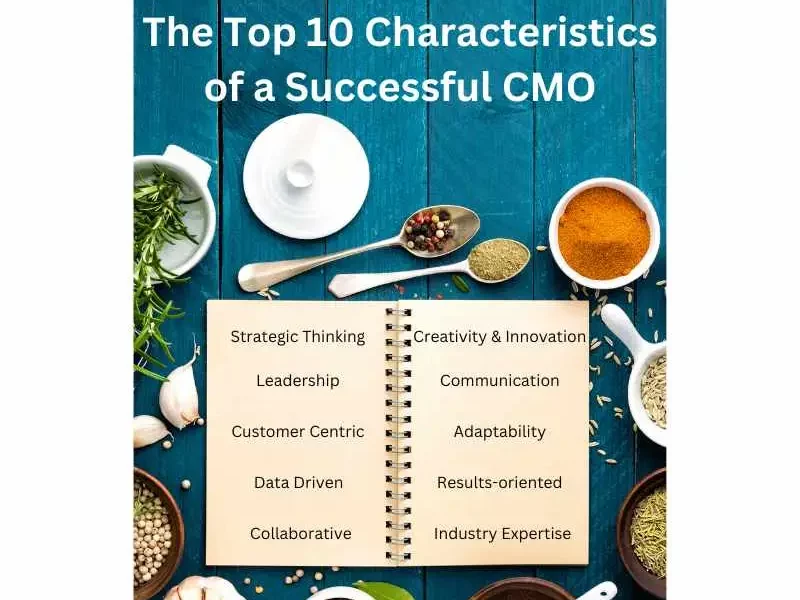
Are you wondering what it takes to be a successful Chief Marketing Officer? As a CMO Coach, I’m often asked this question. And while there’s no one-size-fits-all answer, there are some universal characteristics of good marketing and leadership that will serve all CMOs well and help ensure the greatest chance of success.
To explore this further, I dug into major articles on the topic, surveyed marketers, and consulted with Chat GPT & Bing AI. And guess what? There’s a great deal of commonality in the answers.
So, without further ado, here are the top 10 characteristics of a successful CMO:
Strategic thinking: CMOs need to be able to think strategically and develop plans that align with the company’s overall goals and objectives.
Strong leadership skills: CMOs need to be able to lead and motivate their teams to achieve results and inspire innovation.
Customer-centric approach: Successful CMOs focus on the customer and work to create a customer experience that meets their needs and exceeds their expectations.
Data-driven decision-making: CMOs need to be able to analyze data and use insights to make informed decisions about marketing strategies and tactics.
Collaborative mindset: CMOs need to be able to collaborate with other departments and stakeholders within the company to align on business goals and execute successful marketing initiatives.
Creativity and innovation: Successful CMOs are able to think creatively and develop innovative marketing ideas that differentiate their brand from competitors.
Strong communication skills: CMOs need to be able to effectively communicate with stakeholders, customers, and their teams to ensure everyone is aligned and understands the goals and objectives.
Ability to adapt to change: CMOs need to be able to adapt to changes in the market, technology, and customer preferences to ensure their marketing strategies remain relevant and effective.
Results-oriented mindset: CMOs need to be able to measure the success of their marketing initiatives and adjust strategies accordingly to drive results.
Industry expertise: Successful CMOs have a deep understanding of the industry they operate in and stay up-to-date on trends and best practices.
But let’s be real, that’s quite the list of expectations, and it’s no wonder that the tenure of CMOs can be brief.
The pressure, coupled with organizational contexts that lack strategy, sub-optimal organizational structures, and unrealistic expectations to deliver immediate performance uplifts, can further undermine a new CMO’s chances of success.
It’s no surprise then that many new CMOs feel overwhelmed with the level of responsibility and may even struggle with imposter syndrome. This can lead to a lack of confidence and decision-making paralysis, hindering their ability to meet the expectations of the role.
That’s why coaching and mentoring have become such a critical part of the mix that supports successful CMOs. But why aren’t CEOs and HROs making the provision of training, mentoring, and coaching a bigger priority for new CMOs and their high potential marketing talent?
Let’s keep the conversation going. What do you think are the essential qualities of a successful CMO, and how can organizations better support their marketing leaders?
© 2022 CMO Coach | Privacy Policy | Cookie Policy

© 2022 CMO Coach | Privacy | Terms of Use | Accessibility